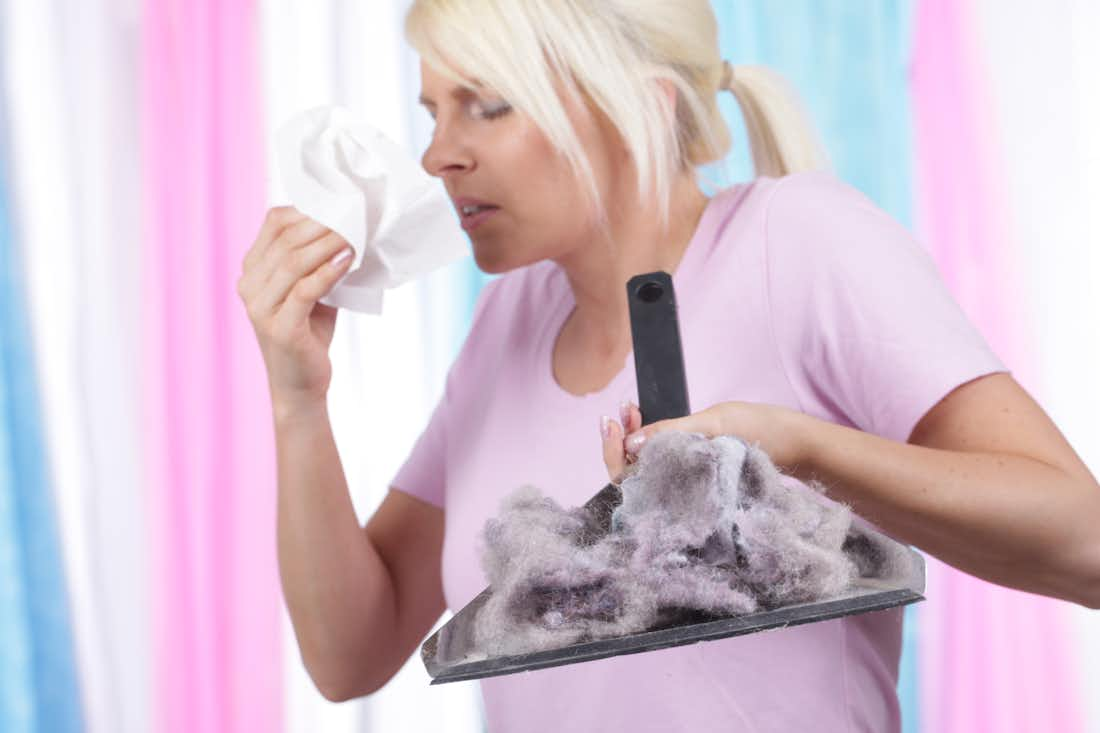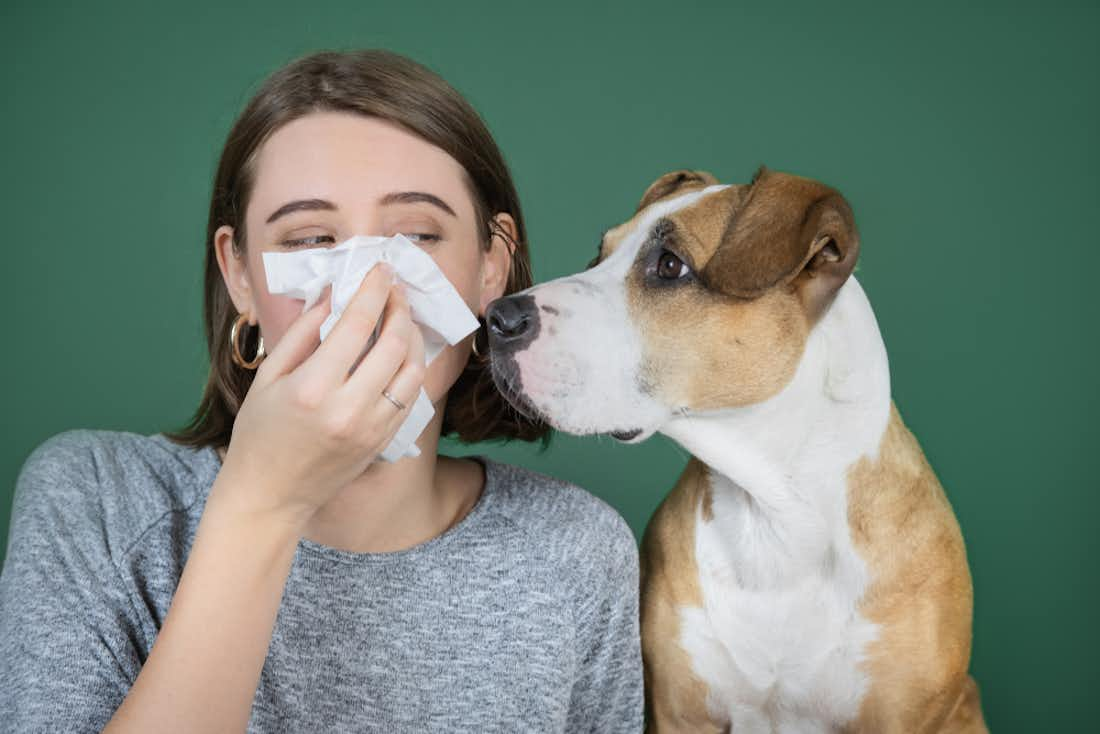Nov 24, 2021
How To Increase Sublingual Absorption
13 minute read
If you’re suffering from seasonal allergies, sublingual allergen immunotherapy is one treatment you need to know about.
Immunotherapy is an allergy treatment that allergists have recommended for decades, especially for people who suffer from stubborn allergies that won’t respond to other medications. While there are two types of immunotherapy – sublingual and subcutaneous – we’ll be focusing solely on sublingual treatments in this post.
Whether you’re new to immunotherapy for allergies or have been undergoing treatment for a long time, you’ve come to the right place.
Let’s learn more about immunotherapy treatments and taking steps to get faster, fuller relief from your allergy symptoms.
First Off: What Is Sublingual Medication?
Sublingual medication is taken by placing a dose under your tongue and letting it dissolve. After dissolving, the medication is absorbed into your bloodstream, where it starts doing its work.
Types of Sublingual Medication
Several different types of medication can be taken sublingually. They include:
- Tablets: They melt in your mouth and are commonly used for managing symptoms like nausea, vomiting, and allergies.
- Lozenges: They dissolve in your mouth and are often flavored. Lozenges are often supplements rather than prescription medication, sometimes containing minerals like zinc.
- Sublingual drops: This is the type of sublingual medication normally used to treat allergies.
Sublingual Allergy Treatments Explained
One of the most common uses for sublingual medication is allergy immunotherapy. This treatment method is often recommended for sufferers of chronic seasonal allergies with symptoms that don’t seem to go away in response to other treatments.
When a patient gets treated for allergies with sublingual immunotherapy, treatment aims to lower the immune system’s sensitivity to specific allergens. The immunotherapy medication contains small amounts of the patient’s allergy triggers, and these allergens are absorbed into the bloodstream when each dose is taken.
The idea of taking medication that contains allergens might sound backward, but there’s a reason behind it. An oversensitive immune system causes allergic reactions, and most allergens are, in reality, harmless.
By slowly increasing the amount of an allergen that the immune system is exposed to, allergy symptoms should gradually decrease and, eventually, go away.
Why Sublingual Immunotherapy?
Sublingual immunotherapy is often recommended to allergy sufferers due to its convenience, accessibility, and effectiveness. In contrast to subcutaneous immunotherapy (allergy shots), sublingual treatment tends to have a lower risk of causing side effects.
Because of the minimal risk of an adverse reaction, sublingual immunotherapy is considered a safe treatment for at-home use.
In addition, while both shots and sublingual immunotherapy are thought to be highly effective treatment strategies for allergies, one requires significantly more time and effort than the other.
Shots are effective and reliable, but getting them means frequent visits to the allergist’s office. In addition, the cost of subcutaneous immunotherapy treatments can sometimes be high.
In contrast, sublingual immunotherapy is safe to take at home, has a low risk of side effects, and is sometimes covered by medical insurance. These are just a few of the reasons why we at Cleared are big fans of sublingual treatment for allergies.
Is Immunotherapy Safe?
The short answer to this question is yes.
When you start taking immunotherapy treatments by mouth or getting allergy shots, your allergist will fill you in on all of the potential side effects that you might experience during the treatment process.
However, these side effects are highly unlikely, and your allergist will prepare you to respond if an adverse reaction occurs.
Because immunotherapy works by exposing your body to the causes of your allergies, there’s always the possibility that symptoms will arise after receiving treatment. However, the reaction that might occur following the administration of immunotherapy medication isn’t likely to pose a severe threat to your health.
Severe adverse reactions to immunotherapy are more closely associated with subcutaneous treatment (shots) than sublingual medication. This increased risk of side effects is one of the main reasons why allergy shots can’t be self-administered at home – you’ll have to be at an allergist’s office for treatment.
Sublingual immunotherapy comes with a much lower risk of an adverse reaction, and your sublingual treatments can be taken at home without the supervision of an allergist. However, it’s always a good idea to let your allergist know if any unexpected side effects do develop at any point during treatment.
The Pros and Cons of Sublingual Medication For Allergies
There are plenty of reasons to try sublingual immunotherapy treatments for allergies, but some potential drawbacks are to consider. Let’s explore the pros and cons of this treatment method for allergies.
The Pros
Some of the major perks of sublingual allergy immunotherapy include:
- Faster results. Studies of sublingual medications have shown that these meds typically produce results faster than treatments that are taken orally.
That means that when you take a sublingual immunotherapy treatment, the medication has quicker access to your bloodstream, allowing it to start working as fast as possible.
- Less medication is lost to your body’s hepatic first-pass metabolic processes. When you take medication or supplements orally, that medication enters your liver and goes through major changes.
While being processed by your liver, an orally administered medication can become much less bioavailable, meaning the effects of the medication on your body are no longer as strong.
With sublingual immunotherapy, the treatment bypasses metabolization in the liver instead of going directly into your bloodstream.
You can take sublingual treatments without supervision. In contrast to allergy shots, your sublingual allergy immunotherapy treatments can be taken at home without being overseen by an allergist. That means less commuting and medical bills than you would deal with while undergoing subcutaneous immunotherapy treatments.
**Sublingual treatments seem to produce long-term results.** Both types of immunotherapy are intended to help you manage your allergies in the long run and even stop dealing with them entirely.
In some cases, consistent immunotherapy treatments over periods of months and years can even eliminate the need for over-the-counter and prescription treatments like antihistamines.
The Cons
Some potential drawbacks to immunotherapy for allergies are:
Not for everyone. Immunotherapy treatments don’t work for all types of allergies. This type of treatment can’t mitigate reactions caused by food or medication. The treatment is typically used to help patients who have asthma and allergic rhinitis (hay fever).
Long-term. This is as much of a pro as a potential con, but allergy immunotherapy takes a long time to work. You’ll have to be patient as you continue treatment over months and even years.
However, you’re likely to see major improvements in the severity of your allergy symptoms long before treatment is complete.
Factors That Can Affect the Effectiveness of Sublingual Immunotherapy
In some cases, allergy immunotherapy works better than others, and vice versa. If your immunotherapy treatments haven’t been successful so far, your allergist may start exploring the possibility that certain factors are disrupting the treatment, including any of the following:
Taking the Medication Wrong
Sometimes, you might be tempted to eat, drink, or chew gum immediately after taking your immunotherapy treatments. However, it’s best to wait until the treatment has been completely absorbed to put anything else in your mouth.
In addition, it’s essential not to swallow sublingual immunotherapy doses – instead, let them dissolve under your tongue. Swallowing a dose of your immunotherapy medication is safe, of course, but it dramatically decreases the effectiveness of the dose.
Exposure To Other Airborne Irritants
While you might not be allergic to them, environmental triggers like smoke, dust, and more can all exacerbate your allergy symptoms during immunotherapy treatment. While these factors don’t necessarily make the treatment less effective, they can leave you feeling uncomfortable and worsen your allergies.
The solution? Limit exposure to air pollutants like smoke and dust as much as possible. In addition, equipping your home with a HEPA air filter or air purifier can help to maximize the air quality in your home.
Mouth Sores and Other Types of Oral Inflammation
Open sores in your mouth, as well as other forms of mouth inflammation, can disrupt your absorption of immunotherapy medication, making the treatment less effective. If you’re currently suffering from a mouth ulcer, a sore, or an open cut in your mouth or gums, make sure to let your allergist know before continuing treatment.
Smoking
Smoking – and using tobacco products, in general, can limit your ability to absorb sublingual medications effectively. This is because of the constricting effect that smoking has on your blood vessels, which reduces your body’s ability to use medication that is absorbed into your bloodstream.
In addition, smoking can cause a wide array of other health problems, including an increased risk of lung cancer. Quitting is the best possible solution for smoking’s negative impact on the absorption of sublingual medication – and it’s a good choice for your health.
Your Saliva’s pH Balance
The acidity and alkalinity levels in your mouth can also have an effect on your body’s ability to absorb and use allergy immunotherapy treatments. This is because your body’s ionization of sublingual medications is largely dependent on the pH in your mouth.
Drugs become ionized or “charged” in response to a certain level of acidity in your mouth, which can decrease their effectiveness.
The main factors that can negatively affect the pH balance in your mouth are what you eat and what you drink. That’s why it’s recommended that you avoid eating or drinking anything shortly before and after taking each dose of your immunotherapy medication.
The Amount of Saliva In Your Mouth
When there is plenty of saliva in your mouth, your sublingual immunotherapy treatments are more likely to be absorbed effectively.
When your mouth is dry, it is more difficult for the medication to be absorbed into your bloodstream, as allergy drops are aided by saliva dissolving under your tongue.
Frequently Asked Questions About Sublingual Immunotherapy
What Allergies Can Immunotherapy Treat?
Immunotherapy treatments can be used to remedy a number of allergies, including:
Pollen, which typically causes seasonal or perennial allergy symptoms. For most people with pollen allergies, the main culprits are certain trees, flowers, and weeds. You’ll need a specific immunotherapy treatment for each type of pollen that you are allergic to.
Mold. Mold allergies can cause symptoms inside and outside, making this common allergen cause near-constant misery for many people. Immunotherapy treatments can offer a long-term source of relief to sufferers of mold allergies. Still, it’s also often necessary to avoid mold-contaminated areas as much as possible to keep symptoms to a minimum.
Dust mites. These microscopic creatures dwell indoors in carpet, upholstery, and sheets, feeding on the dead skin cells left behind by humans. For some, the waste left behind by dust mites causes an allergic reaction, which long-term immunotherapy treatments can mitigate.
Pet dander. In some cases, allergen immunotherapy is recommended to sufferers of pet allergies. However, avoidance and daily relief medications are more commonly used to manage pet allergy symptoms.
Is Immunotherapy Safe For Kids?
Immunotherapy treatments are often recommended to parents whose kids have asthma or seasonal allergies.
While some children may get the relief that they need from over-the-counter or prescription antihistamines, many kids need long-term, sustained immunotherapy treatments to get their allergy symptoms to a manageable level.
In many cases, kids are given subcutaneous immunotherapy treatments at an allergist’s office. However, if your child is afraid of needles, weekly or biweekly visits to the allergist for shots can be miserable – for both you and them. Luckily, sublingual immunotherapy offers an easier and more accessible alternative to shots.
Sublingual immunotherapy treatments are safe for kids, and getting treated can be a much less stressful experience for children when needles are out of the picture.
What About Older Individuals?
Allergies are a common issue in the over-65 age group, with many older individuals dealing with symptoms just as much as they did when they were younger. If you are older and continue to suffer from allergy symptoms, immunotherapy is definitely worth looking into.
However, allergy immunotherapy is not always the first treatment suggested to older allergy sufferers.
The main reason why doctors do not always recommend immunotherapy to older individuals is because of more glaring health issues. Doctors – and their patients – are often more focused on finding treatments for more severe conditions than allergies.
However, finding a treatment that works for an older individual’s allergies can positively impact their quality of life. Even if you suffer from other health conditions with more severe symptoms, getting relief from your allergies can make a big difference in your life – especially when you are older.
Do Immunotherapy Treatments Taste Like Anything?
Some allergy drops are slightly flavored with vegetable glycerin, which gives each dose a mildly sweet taste.
Whenever you take a dose, you’ll need to hold it in your mouth for about a minute, allowing it to dissolve. The pleasant flavor makes taking your immunotherapy treatments enjoyable – it’s never a chore, and you’re not likely to forget a dose.
How Long Does Treatment Last?
In many cases, sufferers of seasonal allergies need to continue sublingual immunotherapy treatments for several years. In the early stages of treatment, your body will still be getting used to increased exposure to allergens.
The buildup process to a higher dose of your immunotherapy treatment can take time, so it’s important to be patient and not give up on the treatment – even if you do not see results yet.
Compared to subcutaneous immunotherapy, allergy drops typically need to be taken for about the same amount of time. Like sublingual treatments, allergy shots are usually administered over a period of several years, starting with an incremental increase in dosage and working up to a maintenance dose.
That means that whichever immunotherapy treatment you choose, the timeframe for the treatment process will be several years.
After your immunotherapy treatments are complete, you’re likely to see a significant reduction in your allergy symptoms – or have no noticeable symptoms at all. In addition, longitudinal studies of immunotherapy results have shown that improvements can last for at least several years without any additional allergy treatments.
While immunotherapy is a time commitment and an investment, it’s also one of the most effective treatment options for sufferers of stubborn seasonal allergies. If your symptoms aren’t going away in response to other medications, it’s time to consider sublingual allergen immunotherapy as your next step.
Conclusion
When it comes to finding long-term relief for your allergies, immunotherapy is one of the best treatment options out there. While allergy shots are an effective form of immunotherapy, they can be more costly and time-intensive than sublingual treatments.
That’s why Cleared recommends trying sublingual immunotherapy as a solution for your stubborn allergy symptoms – it’s affordable, accessible, and can be taken in the comfort of your home.
If you’re curious about whether immunotherapy is the right treatment for your allergies, we’re here to help. At Cleared, we specialize in helping allergy sufferers find a treatment strategy that works for them.
We never take a “one-pill-fits-all” approach to treatment because we know that you and your allergies are unique. Through a combination of treatments like immunotherapy, allergy relief medications, and daily support supplements, we can help you tackle the root causes of your allergies and finally get relief from your symptoms.
You can start the allergy treatment process by booking an online consultation with one of our allergists. From there, you’ll get a personalized treatment plan, as well as recommendations for how to keep your symptoms to a minimum. If you have questions or concerns during the treatment process, your allergist will be there to help you out!
To learn more about immunotherapy and other treatments for allergies, make sure to visit our blog. There, you’ll find a wealth of information about the treatment strategies that we use to help allergy sufferers conquer their symptoms and live happier lives.
Sources:
Sublingual Immunotherapy | Hopkins Medicine
Duration of Allergen Immunotherapy for Long-Term Efficacy in Allergic Rhinoconjunctivitis | NCBI



